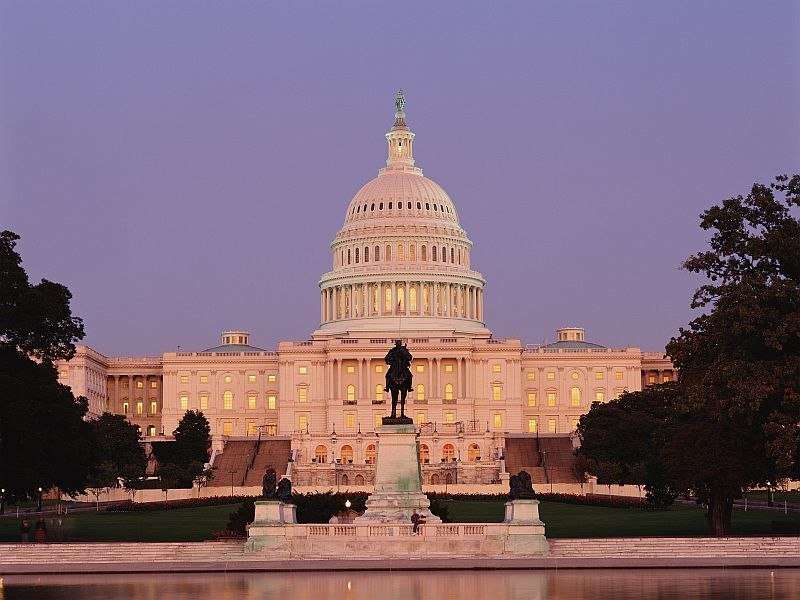As tax bill unfolds, what's in store for Obamacare's individual mandate?

(HealthDay)—As U.S. House and Senate leaders huddle to reconcile differences between their respective tax reform bills, the fate of the Affordable Care Act's individual mandate remains uncertain.
Senate Republicans' sweeping tax overhaul measure, passed early Saturday, includes a provision to repeal the controversial mandate, which requires most Americans to have health insurance or pay a penalty. The House version does not include a similar provision.
Repealing that part of the Affordable Care Act (ACA) would result in 13 million fewer people having insurance coverage over the next decade, according to an independent analysis by the U.S. Congressional Budget Office (CBO).
Premiums in the individual insurance marketplaces, where consumers can purchase insurance under the Affordable Care Act, also known as Obamacare, would rise by about 10 percent in most years, the CBO projected.
The individual mandate is "critical" to a well-functioning marketplace, explained Sam Berger, a senior policy analyst at the Center for American Progress. It brings more people—especially younger, healthier ones—into the marketplace, which helps keep premiums lower for everyone.
"This is the way insurance works, right? If you could buy fire insurance after your house burned down, it wouldn't make any economic sense," he said.
Obamacare opponents want to see the mandate go away.
Ed Haislmaier, senior research fellow at The Heritage Foundation, a conservative think tank, said people are better off without it because it's an unwarranted tax.
He also questions whether the mandate has been effective in prodding people to get health insurance coverage.
"For the mandate to have effect, you have to believe that there are people who, one, don't think they need health insurance; two, don't like what's being offered or the price that it's being offered at [and] would rather not pay it; or, three, are going ahead and buying it anyway because to not buy it they would be penalized," Haislmaier said.
If there aren't a lot of people motivated by the mandate, then removing it "would have little or no effect on people buying coverage," he added.
Cori Uccello, a senior health fellow at the American Academy of Actuaries, said that the mandate could have been stronger, but "it's tough to argue that the mandate didn't have any effect at all."
If the mandate goes away, it becomes a vicious cycle of rising premiums and people dropping out of the insurance pools, she said.
Many Obamacare buyers receive subsidies to buy insurance, Uccello pointed out. If premiums go up, so will their subsidies.
It's the folks who are not subsidized—making more than 400 percent of the federal poverty level—who "will have to bear the full brunt of the increase in premiums," Uccello explained.
Not having the mandate makes coverage even more expensive for those who want to buy it, she said.
Meanwhile, she added, the Trump administration's executive order expanding access to short-term health insurance plans, which exclude pre-existing conditions and limit or exclude coverage for other benefits, raises new concerns.
"If there's no individual mandate, you could see an even greater incentive for healthy people to choose those short-term plans, causing higher premium increases in the ACA-compliant market," Uccello said.
Sen. Susan Collins (R-Maine) was one of several Republican holdouts who ultimately voted in favor of the Senate tax plan, which repeals the individual mandate.
Collins announced her support for the tax bill after securing key amendments as well as a commitment from Senate Majority Leader Mitch McConnell (R-Kentucky) to support two pieces of bipartisan legislation that would aim to stabilize the ACA.
Those measures could be attached to a year-end spending bill, but they also face opposition by House Republicans, the Washington Post reported.
More information: Sam Berger, J.D., senior policy analyst, Center for American Progress; Ed Haislmaier, senior research fellow, The Heritage Foundation; Cori Uccello, senior health fellow, American Academy of Actuaries; Nov. 8, 2017, report, U.S. Congressional Budget Office; Dec. 1, 2017, news release, U.S. Sen. Susan Collins; Dec. 3, 2017, Washington Post
To find out more about penalties linked to the individual mandate, head to Healthcare.gov.
Copyright © 2017 HealthDay. All rights reserved.















